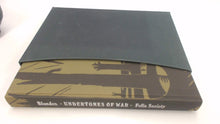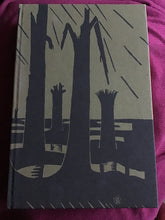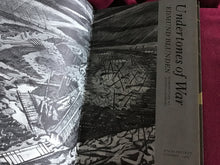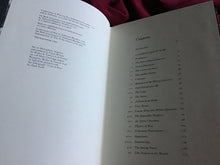Item Condition: Collectible; Very Good
Comes with slip cover. In very good condition.
……
Introduction
Edmund Blunden was born in London on Novermber 18o6 and
two years later noved with his family to a village in Kent where his
father was a schoolmaster. From the local grammar school he won
a scholarship to Christ's Hospital, Horsham, where in due course
the esGepin
Teptoduced
remain devoted to it all his life. Coleridge, Leigh Hunt, and Lamb
had walked its corridors and sat at its benches, and the writings of
these 'Old Blues' were a major influence on the young poet. In r9I4
he gained the senior classics scholarship at Queen's College, Oxford,
and privately printed two parnphlets of verse: Poems and Poems
Translated from the French.
he became senior 'Grecian', He was happy at school and was to
The outbreak of war changed his life like that of so many others.
Within months he was training as a volunteer with the Royal Sussex
Regiment and in to16, a temporary second-lieutenant, he crossed
to France. He took part in some of the worst fighting of the war
(carrying in his pack a copy of Julius Caesar's De Bello Gallico) and,
as soon as it was over, sat down to write his own personal history
of the past three years. This, entitled De Bello Germanico, he soon
abandoned, but ten years later returned to the subject in a book to be
called Undertones of War. The change of titlefrom magniloquent
Latin to the modesty of Undertones is typical of the man who was
to present himself (in the last sentence of the later work) as 'a
harmless young shepherd in a soldier's coat'. De Bello Germanico is
not so much revised as shaken like a kaleidoscope, its bright frag-
ments being incorporated into a larger and richer pattern. The
earlier version is more documentary, contains a higher proportion
of direct speech, but at the same time is less dramatic. For example,
Blunden reports of his first 'wild night' in the trenches:
'One of the wounded was in a very bad case, and over him hung
his brother half-frantic, himself wounded. Brothers in the same
battalionthere were several pairs in this give rise perhaps to
the sharpest griefs of all in war.
A decade later, the scene is both more sharply delineated and set in
a more reflective frame:
"Brothers should not join the same battalion. When we were at the
place where some of the wounded had been collected under the best …








